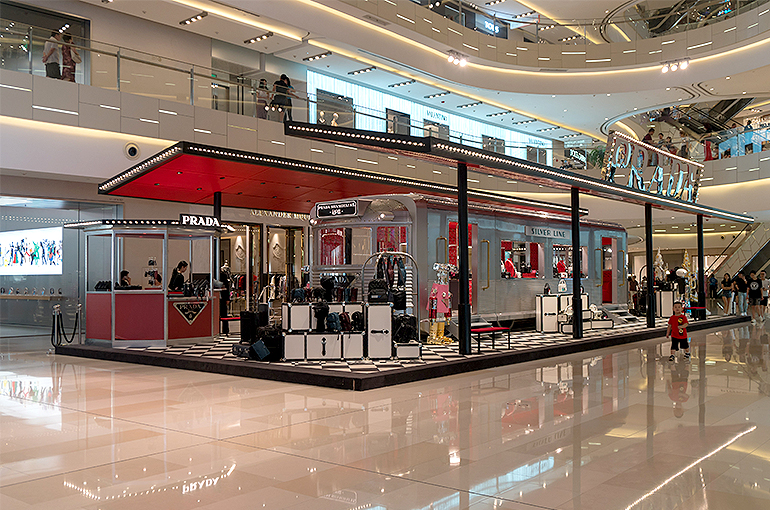(Yicai) Aug. 21 — Operators of Chinese luxury shopping malls, including Hang Lung Properties, saw their rental income slump in the first half of the year, mainly due to a slowdown in luxury goods consumption.
Hang Lung reported revenue of HKD 6.4 billion (US$897 million) in the six months ended June 30, up 15 percent from a year earlier, the Hong Kong-based commercial real estate developer specializing in high-end shopping malls said in its latest earnings report.
However, Hang Lung’s property rental revenue fell 7 percent to HKD5.2 billion, with rental income in mainland China alone shrinking by HKD210 million (US$29.5 million) to HKD3.3 billion. It was the first time that the company’s property rental revenue in the mainland China market declined.
Since the company opened its first shopping mall in Shanghai in 1999, its rental income in mainland China has broken records year after year, even during the three years of the Covid-19 pandemic, honorary chairman Ronnie Chan said in a letter to shareholders last year.
Other commercial real estate developers that operate luxury shopping malls, including Swire Properties, also reported similar trends to Hang Lung in the first half of the year.
Despite the falling rental income, Hang Lung’s luxury malls remain almost fully leased. For example, Plaza 66, one of the company’s most profitable malls in Shanghai, operated at 100 percent occupancy in the first half of the year, but revenue fell 8 percent as tenant sales fell 23 percent.
Operators of high-end shopping malls usually do not set a fixed rent for their tenants, but receive a percentage of their revenue, a commercial real estate investment expert at a leading Chinese real estate company told Yicai. As a result, malls’ revenues are closely linked to their tenants’ revenues, the expert noted, adding that some operators even offer renovation subsidies worth tens of millions of Chinese yuan (equivalent to millions of U.S. dollars) to help tenants increase their revenues.
According to a research report by UBS Group, luxury goods sales in mainland China fell by about 10 percent in the first seven months of the year, with the decline accelerating after May. From the second half of the year through 2026, luxury brands are likely to open fewer new stores in mainland China, so luxury mall operators may need to cut rents or develop new strategies to retain their tenants.
“Luxury consumption has declined among middle-income individuals as they are more willing to buy affordable alternatives due to slower economic growth,” an official at a high-end shopping mall in Shanghai told Yicai. “However, luxury consumption among high-net-worth individuals remains relatively stable.”
Customers with lower purchasing power have become more cautious about luxury consumption, Hang Lung noted, adding that sales at luxury malls also declined because more Chinese people bought luxury goods when they traveled abroad. However, top customers still seek out limited-edition luxury goods, which are mainly sold in malls.
Publisher: Tang Shihua, Futura Costaglione

